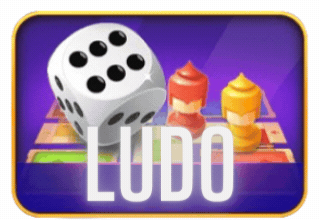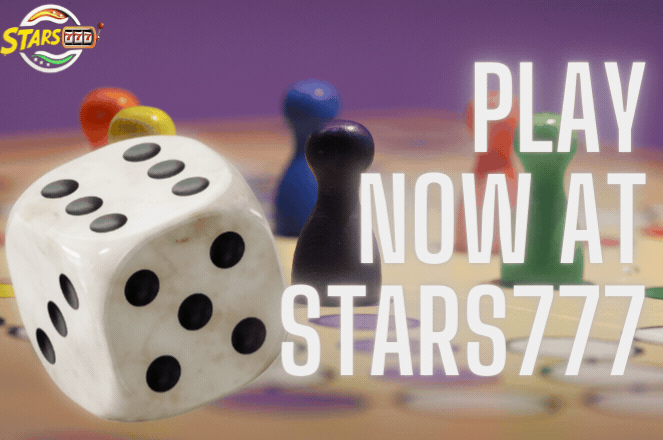Ludo a name that brings back childhood memories for millions. Whether it was gathering around a Ludo board with friends or playing endless rounds during family gatherings, this classic game has long been a symbol of fun, competition, and nostalgia.
But now, Ludo has gone digital, evolving into an exciting multiplayer game for both desktop and mobile platforms like Android and iOS. One version that has taken the online world by storm is Ludo King an app that bridges the gap between old-school charm and modern-day convenience.
And guess what? You can now experience the thrill of Ludo King and other classic games with added excitement at Stars777 Casino a platform known for its variety of engaging games, smooth gameplay, and interactive features.
The Origin of Ludo: A Game Rooted in History
Ludo isn’t just a game it’s a part of our history. Originally derived from an ancient Indian game called Pachisi, Classic board game dates back to the 6th century. The game was played by royalty, with emperors like Akbar enjoying it as a strategic pastime. In the late 19th century, the game was modified by the British and patented as Ludo in 1896. Since then, it has spread worldwide, becoming a household name in India and across the globe.
Now, thanks to modern technology, Classic board game has reignited the game’s popularity, allowing players to connect with friends and strangers alike through exciting online battles available on desktop, Android, and iOS devices.
What is Ludo King?
This Classic board game is a multiplayer board game app that brings the classic Ludo board to your screen. It follows the traditional rules but adds a digital twist, letting you:
- Play online with friends or random opponents.
- Enjoy offline mode against AI or local multiplayer with family.
- Compete in tournaments and leaderboards.
- Unlock fun themes — from classic boards to futuristic designs.
What makes Dice board game truly exciting is its cross-platform play meaning you can challenge your friends whether they’re using a desktop, Android, or iOS device. This flexibility has made it one of the most downloaded and played games globally.
And now, Stars777 Casino brings the thrill of Ludo King to its platform, letting you combine the fun of rolling dice with the excitement of live bets and online tournaments.
How to Play Ludo King: The Rules
The rules of Ludo King mirror the classic game, making it easy for both beginners and seasoned players to jump in.
1. Setting Up the Game
- The game can be played by 2 to 4 players.
- Each player picks a color — Red, Blue, Green, or Yellow.
- The goal is to move all four of your tokens from the starting area to the home triangle by circling the board.
2. Rolling the Dice
- Each player rolls a dice during their turn.
- You need a 6 to move a token from the starting area to the board.
- Rolling a 6 gives you another turn, but rolling three 6s in a row skips your next turn.
3. Moving the Tokens
- Tokens move clockwise around the board according to the dice roll.
- If you land on a square occupied by an opponent’s token, you capture their piece sending it back to their start.
- Safe zones are marked by colored squares where tokens cannot be captured.
4. Reaching Home
- Once a token completes the board circle, it moves up the home column.
- The first player to get all four tokens into the home triangle wins the game.
Simple, fun, and competitive just the way we like it!

Features of Ludo King That Make It Special
Why has Ludo King become a household name in online gaming? Here are some standout features:
1. Multiplayer Across All Devices
Challenge your friends or play with strangers on desktop, Android, or iOS — Ludo King lets everyone join the fun, no matter their device.
2. Live Voice Chat
Want to trash-talk or strategize during a game? The live voice chat feature adds a personal touch, making every match feel like a real-life gathering.
3. Customizable Boards
From the classic Ludo board to creative themes like Egyptian kingdoms or Nature’s Paradise, you can add flair to your gaming experience.
4. Offline Mode
No internet? No problem. Ludo King allows you to play against AI or pass-and-play with family and friends offline.
5. Daily Challenges and Leaderboards
Compete in daily tournaments, earn rewards, and climb the global leaderboards — adding a competitive twist to the classic game.
Why Play Ludo King at Stars777 Casino?
While Ludo King is thrilling on its own, playing it on Stars777 Casino takes the experience to a whole new level. Here’s why:
1. Win Real Rewards
Unlike the traditional game, playing Ludo King on Stars777 allows you to place bets and win real money turning friendly competition into high-stakes excitement.
2. Seamless Gameplay
Stars777 offers smooth graphics and lag-free gameplay, ensuring every dice roll and token move happens in real-time without glitches.
3. Exciting Tournaments
Join live multiplayer tournaments where you can bet, compete, and win against players from around the world.
4. Secure and Fair Play
With Stars777’s secure platform, you can be confident that every dice roll and outcome is random and fair keeping the game honest and fun.
5. Cross-Game Bonuses
Play Ludo King and explore other games like slot games, live casino options, and card games all with exciting bonuses and cashback offers.
Pro Tips to Win Ludo King
Winning Ludo King isn’t just about luck strategy matters too! Here are some tips:
1. Prioritize Unlocking All Tokens
Don’t keep moving one token; get all four out of the starting area as soon as possible to spread your chances.
2. Use Safe Zones Wisely
Plan moves so your tokens land on safe squares avoiding capture by opponents.
3. Target Opponents Strategically
If you have a chance to capture an opponent’s token, do it. It slows their progress and increases your chances of winning.
4. Balance Risk and Reward
Don’t get too aggressive sometimes, it’s smarter to pull back and play safe rather than chase opponents.
5. Stay Calm Under Pressure
In multiplayer games, staying cool and calculating your moves carefully can give you an edge over emotional opponents.

Conclusion
Whether you’re a lifelong Ludo fan or a newcomer to the multiplayer board game scene, Ludo King offers the perfect blend of nostalgia and modern fun. And with Stars777 Casino, the excitement reaches new heights with real stakes, live tournaments, and endless entertainment.
- Stars777 – Download and Install the app to play casino games with free starting bonuses and get the chance become billionaire someday!
- Stars777 Privacy Policy — Understand how Stars777 collects, uses, and protects your personal information when you use their platform.
- Stars777 Terms of Service and Guidelines — Learn about the rules and conditions you agree to when accessing and using Stars777’s online casino services.
So, what are you waiting for?
Join Stars777 today, roll the dice, and let the battle for the Ludo crown begin!
FAQs
Q1: Is Ludo King free to play?
Yes! Ludo King is free, but playing on Stars777 allows you to bet and win real rewards.
Q2: Can I play Ludo King on mobile?
Absolutely! It’s available on both Android and iOS and Stars777 ensures smooth mobile gameplay.
Q3: Is Ludo King on Stars777 safe?
Yes! Stars777 is a secure platform, offering fair gameplay and safe transactions.
Q4: How do I join a Ludo tournament on Stars777?
Simply sign up on Stars777, head to the Ludo section, and enter live multiplayer tournaments to win big!





 1,155,230 Players Online Now!
1,155,230 Players Online Now!
 Hot Right Now: 210,900 Players in Aviator!
Hot Right Now: 210,900 Players in Aviator!
 Invite friends, get up to ₹1,000 bonus each!
Invite friends, get up to ₹1,000 bonus each! Big Winner Alert! Vijay ne abhi jeeta
Big Winner Alert! Vijay ne abhi jeeta